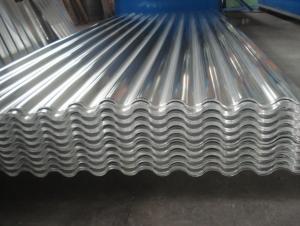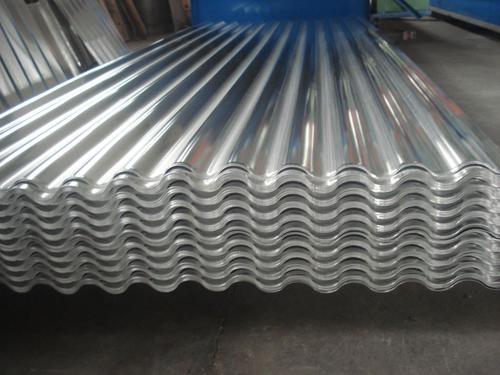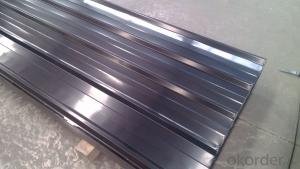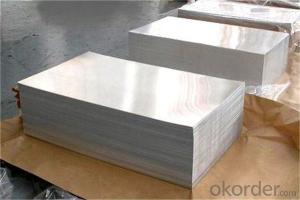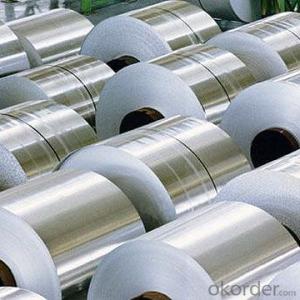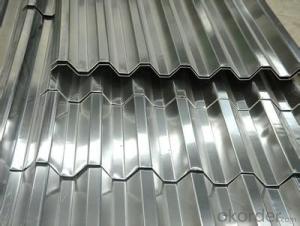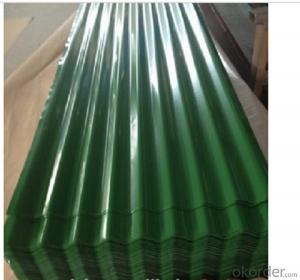Aluminum Sheets for Sale Canada - Extruded Aluminum Tiles for Roofing Application
- Loading Port:
- Tianjin
- Payment Terms:
- TT OR LC
- Min Order Qty:
- 5 m.t.
- Supply Capability:
- 80000 m.t./month
OKorder Service Pledge
OKorder Financial Service
You Might Also Like
Specification
Extruded Aluminum Tiles For Roofing Application
Specifications
Alloy NO. | Thickness | Width | Length | Production line | Circulation size |
1050 1060 1100 3003 | 0.3-9.5mm | 800--2200mm | 1000--10000mm | DC,CC | 1220*2440mm 1250*2500mm 1500*3000mm 1000*2000mm
|
5052 5083 5454 5754 5086 | 0.5-150mm | 800--2200mm | 1000--6000mm | DC | |
6061 | 5-150mm | 800--2200mm | 1000--10000mm | DC | |
7075 | 6-150mm | 800--2200mm | 1000--10000mm | DC | |
Packing | Stick blue film→plastic film→waterproof paper→1~2 tons on a export standard pallet(corner protection) | ||||
Application | decoration:ceilings,walls,furniture,cabinets,elevators,signs,name plate, transportation, cookware, household appliances:refrigerators,microwave ovens, machinery, mold making,aerospace and military aspects, auto, PP cap , construction etc | ||||
Standard | Chemical Composite: GB/T 3190-2008, JIS, EN, ASTM | ||||
Mechanical Property: GB/T 3880.2-2012, JIS, EN, ASTM | |||||
MOQ | 5TONS | ||||
Kind attention | Specifications can be customized as the customer’s requirements | ||||
Application
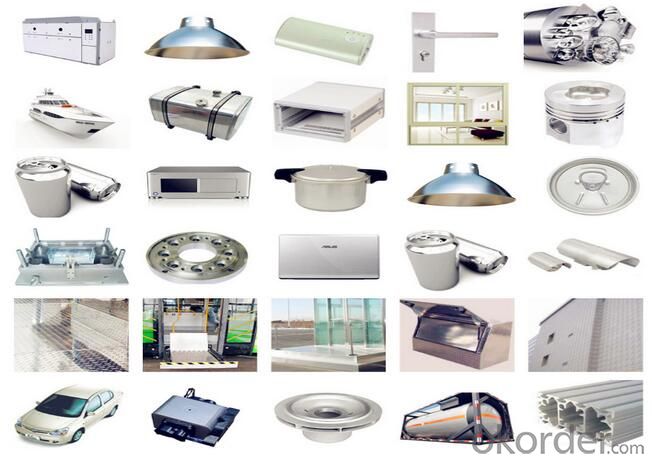
Variety
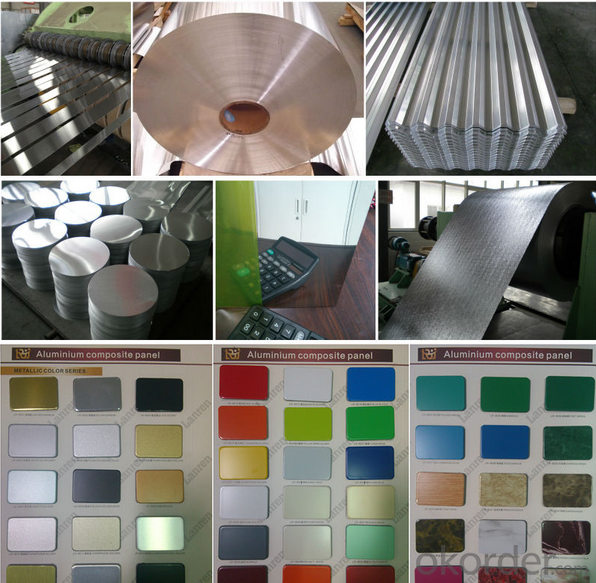
FAQ
Q: Can you provide free samples?
A: Yes, free samples will be sent to you on freight at destination.
Q: Can I get your latest catalogue?
A: Yes, it will be sent to you in no time.
Q: What are your payment terms?
A: We accept L/C, D/A, D/P, T/T, West Union, etc
Q: Can you provide free samples?
A: Yes, free samples will be sent to you on freight at destination.
Q: Can I get your latest catalogue?
A: Yes, it will be sent to you in no time.
Q: What is the MOQ?
A: 5 tons.
- Q: I'm 17 and it has been very hard finding a deodorant that makes me stop sweating. I told my dad I wanted to get Ban or Mitchum cause the percentage of Aluminum is very high. He said the Aluminum in deodorant has links to alzheimers, is that true? Also my sister said I could just scrub with soap morning and night, use regular deodorant without antipersperant and that would make me stop sweating too. But since i'm a teenager and my hormones are still weird would that be strong enough to stop sweat?
- aluminum oxide in antipersperant does lead to alzheimer's, yes. but antiperspirant is not deodorant, and deodorant does not contain aluminum. sweating is a natural bodily function. if you need to sweat, sweat. it's odor that should bother people.
- Q: How does the surface roughness affect the friction properties of aluminum sheet?
- The friction properties of an aluminum sheet are significantly affected by its surface roughness. When the surface is rough, there are more microscopic peaks and valleys, which can enhance the frictional forces between the sheet and the contacting surfaces. Generally, an increase in surface roughness results in a higher friction coefficient. This occurs because the roughness increases the effective contact area between the aluminum sheet and the opposing surface, leading to more interlocking and adhesion between the two surfaces. Consequently, the resistance to relative motion, or friction, is heightened. Moreover, a rough surface can trap lubricants or contaminants, reducing lubrication efficiency and increasing friction. The roughness of the aluminum sheet also influences the formation and retention of a lubricating film, further impacting the friction properties. It is important to acknowledge that the type of roughness, such as its amplitude, wavelength, and orientation, can also affect the friction properties. For instance, certain surface textures, like grooves or patterns, may facilitate lubricant retention and reduce friction, even with increased roughness. In summary, the friction properties of an aluminum sheet are significantly determined by its surface roughness. A rough surface increases the contact area and adhesion between the sheet and opposing surface, resulting in higher friction coefficients. However, the specific characteristics of the roughness and the presence of lubricants or contaminants can further influence the friction behavior.
- Q: This question asks about the impact of aluminum sheets on the quality of air inside a building.
- <p>Aluminum sheets themselves do not directly affect indoor air quality in a building. They are inert materials that do not emit harmful gases or particles. However, the installation process may involve adhesives or sealants that could release volatile organic compounds (VOCs) temporarily, which can affect air quality. Proper ventilation during installation and after can mitigate this. Additionally, aluminum sheets can contribute to better air quality by providing a barrier against moisture and mold growth, which can be a concern with other building materials.</p>
- Q: I need to find 3 elements for my science hw tonight. I was wondering if aluminum foil is a pure element. And also I was wondering if anyone had any ideas of what is a pure element (not a compound or an alloy). Thanks!!!!
- I'm pretty sure that the words element and pure element are exchangeable... pure element basically just emphasizes the fact that it is pure.
- Q: Can aluminum sheet be used for solar panels?
- Absolutely! When it comes to solar panels, aluminum sheet is a fantastic choice. Thanks to its remarkable strength, durability, and lightweight nature, aluminum is a widely favored material for constructing these panels. Its versatility shines through as it serves as both the frame and mounting structure, providing unparalleled support and stability. Moreover, its exceptional resistance to corrosion is a crucial factor given the panels' exposure to the elements. On top of all that, aluminum's highly conductive properties allow for efficient electricity transfer from the solar cells within the panel. All in all, incorporating aluminum sheet into solar panel construction significantly enhances their performance, longevity, and overall efficiency.
- Q: Can aluminum sheets be anodized in different finishes?
- Yes, aluminum sheets can be anodized in different finishes. Anodizing is an electrochemical process that enhances the natural oxide layer on aluminum, making it thicker and more durable. This process can be customized to achieve various finishes such as clear, colored, or even textured surfaces. The type of finish depends on factors like the alloy composition, anodizing method, and the desired appearance. Anodized aluminum sheets are widely used in various industries including architecture, automotive, and electronics due to their corrosion resistance, aesthetic appeal, and ability to retain color over time.
- Q: Are 101 aluminum sheets suitable for outdoor signage?
- Yes, 101 aluminum sheets are suitable for outdoor signage. They are corrosion-resistant, durable, and can withstand various weather conditions, making them a suitable choice for outdoor applications.
- Q: How does the purity of aluminum affect its properties as a sheet?
- The purity of aluminum plays a significant role in determining its properties as a sheet. Higher purity levels of aluminum generally result in improved mechanical properties, thermal and electrical conductivity, as well as better corrosion resistance. When aluminum is highly pure, meaning it has a low level of impurities, it becomes more malleable and ductile, making it easier to form into thin sheets. This makes highly pure aluminum sheets more suitable for applications where intricate shapes and designs are required. Additionally, the high electrical conductivity of pure aluminum makes it an excellent choice for electrical applications, such as wiring and circuit boards. It allows for efficient transmission of electricity and reduces the risk of overheating. Moreover, the thermal conductivity of pure aluminum makes it an ideal choice for heat transfer applications. Aluminum sheets with high purity can efficiently dissipate heat, making them well-suited for applications such as heat sinks and radiators. Furthermore, the corrosion resistance of aluminum increases with higher purity. Pure aluminum forms a protective oxide layer on its surface, which helps prevent corrosion and extends the lifespan of aluminum sheets in various environments. In summary, the purity of aluminum directly affects its properties as a sheet. Higher purity levels enhance its mechanical properties, electrical and thermal conductivity, as well as corrosion resistance, making it more versatile and suitable for a wide range of applications.
- Q: What are the safety standards for using aluminum sheets in construction?
- <p>Yes, there are safety standards related to using aluminum sheets in construction projects. These standards ensure the material's structural integrity, durability, and safety. They include specifications for thickness, strength, and quality of aluminum sheets, as well as guidelines for their installation to prevent issues like corrosion, fire hazards, and structural failure. Compliance with these standards is crucial for the safety of the construction workers and the longevity of the building.</p>
- Q: What are the common thicknesses of aluminum sheets used in transportation industry?
- In the transportation industry, aluminum sheets are commonly used for various applications due to their lightweight, durability, and corrosion resistance. The common thicknesses of aluminum sheets used in the transportation industry typically range from 0.025 inches (0.63 mm) to 0.125 inches (3.18 mm). For applications such as automotive body panels, which require a balance of weight reduction and structural integrity, aluminum sheets with thicknesses of 0.040 inches (1.02 mm) to 0.063 inches (1.6 mm) are commonly utilized. These thicknesses provide sufficient strength while keeping the weight of the vehicle lower compared to steel counterparts. In the aerospace industry, where weight reduction is of utmost importance, thinner aluminum sheets are often used. Thicknesses ranging from 0.025 inches (0.63 mm) to 0.040 inches (1.02 mm) are commonly employed in the construction of aircraft structures, including wings, fuselage panels, and interior components. It is worth noting that the specific thicknesses of aluminum sheets used in the transportation industry can vary depending on the specific application, regulatory requirements, and design considerations. Therefore, it is essential to consult the relevant industry standards and specifications for precise information on the preferred thicknesses for different transportation applications.
Send your message to us
Aluminum Sheets for Sale Canada - Extruded Aluminum Tiles for Roofing Application
- Loading Port:
- Tianjin
- Payment Terms:
- TT OR LC
- Min Order Qty:
- 5 m.t.
- Supply Capability:
- 80000 m.t./month
OKorder Service Pledge
OKorder Financial Service
Similar products
Hot products
Hot Searches
Related keywords
